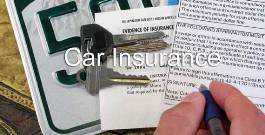 One of the central purposes of a strong civil justice system is to promote public safety by holding wrongdoers financially accountable. When negligent individuals or corporations know they may face significant financial liability, they are far more likely to act responsibly. Short of criminal prosecution, few things are more effective at incentivizing safe conduct than the threat of losing money.
One of the central purposes of a strong civil justice system is to promote public safety by holding wrongdoers financially accountable. When negligent individuals or corporations know they may face significant financial liability, they are far more likely to act responsibly. Short of criminal prosecution, few things are more effective at incentivizing safe conduct than the threat of losing money.
Sovereign immunity, however, undercuts this principle. Rooted in the old-world doctrine that “the king can do no wrong” (Latin: Rex non potest peccare), sovereign immunity was designed to shield monarchs from legal consequences. Today, this concept survives in modern constitutional monarchies like the United Kingdom, Japan, and the Netherlands. Unfortunately, it has also made its way into American law—particularly in states like Florida.
Florida’s Version of Sovereign Immunity
Florida has adopted a modified form of sovereign immunity for civil cases, including personal injury and wrongful death claims. Under Florida Statute § 768.28(5)(a), the state and its agencies are shielded from full liability. Compensation for damages caused by a government entity is capped at $200,000 per individual and $300,000 per incident, regardless of how catastrophic the harm may be.
So, whether someone suffers minor injuries or a family loses a loved one due to government negligence, the total financial exposure for the state remains the same. This cap applies even if a jury awards millions in damages based on compelling evidence and clear fault.
 Florida Injury Attorney Blawg
Florida Injury Attorney Blawg








